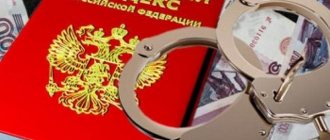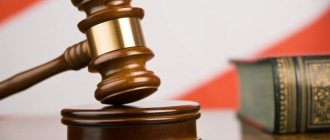1. Generally recognized principles and norms of international law and international treaties of the Russian Federation are, in accordance with the Constitution of the Russian Federation, an integral part of the legal system of the Russian Federation.
2. International treaties of the Russian Federation apply directly to the relations specified in paragraphs 1 and 2 of Article 2 of this Code, except in cases where it follows from the international treaty that its application requires the publication of an internal act.
If an international treaty of the Russian Federation establishes rules other than those provided for by civil legislation, the rules of the international treaty apply.
Article 7
The term “social state” is a characteristic of the constitutional and legal status of the state, a principle that presupposes the enshrinement in the constitution of guarantees of economic and social rights and freedoms of man and citizen and the corresponding responsibilities of the state. This characteristic means that the state serves society and seeks to eliminate or minimize unjustified social differences. The social character of the state was first proclaimed in the Basic Law of the Federal Republic of Germany in 1949.
Article 7 of the Constitution is, by and large, declarative. It proclaims the Russian Federation as a social state, reflecting, rather, the wishes of the authors of the text of the Constitution, rather than the existing state of affairs. How can a state be called social if more than half of its population is below the poverty line or teetering around this line?
Generally speaking, Art. 25 of the Universal Declaration of Human Rights (adopted by the UN General Assembly by resolution 217A (III) of December 10, 1948) is also declarative in nature:
“Everyone has the right to such a standard of living, including food, clothing, housing, medical care and necessary social services, as is necessary for the health and well-being of himself and his family, and the right to security in the event of unemployment, illness, disability, widowhood , old age or other loss of livelihood due to circumstances beyond his control. Maternity and infancy give the right to special care and assistance. All children, whether born in or out of wedlock, should enjoy the same social protection.”
Similar rules are also contained in the International Covenant on Economic, Social and Cultural Rights of December 16, 1966 (Articles 10, 11).
However, it should be noted that, to a certain extent, socially oriented policies are being implemented in our country. Of course, the Russian Federation cannot be compared with the Soviet Union, which was perhaps the “most social” of all social states.
However, some activity in this direction is underway. Officially free secondary education has been preserved (theoretically there is also free higher education), the possibility of free housing has been preserved (again, theoretical), labor legislation has adopted a significant part of the norms on working hours and labor protection. A guaranteed minimum wage has been established (on which it is impossible to live, let alone survive). The fight against unemployment can also be considered as a social policy. True, the actual occupation of the country by millions of labor (and non-labor) immigrants is difficult to regard as an effective means of combating unemployment.
However, under Soviet rule there was neither unemployment (rather, there was a shortage of workers) nor immigrants. And it’s better not to think about free medicine at all...
It cannot be said that there is no “state support for family, motherhood, paternity and childhood, the disabled and elderly citizens,” but the amount of such support clearly does not correspond to the minimum needs of the supported subjects.
“The system of social services is developing,” as is the entire bureaucratic system.
“State pensions and benefits are being established,” allowing people who have worked all their lives for the benefit of the state, who fought, or worked in the rear, to eke out a miserable existence.
In development of the commented constitutional norms, a large number of acts of federal and regional legislation have been adopted. As an example, we can cite federal laws of December 15, 2001 No. 166-FZ “On state pension provision in the Russian Federation”; dated December 17, 2001 No. 173-FZ “On labor pensions in the Russian Federation”; dated November 24, 1995 No. 181-FZ “On social protection of disabled people in the Russian Federation”; from 02.08.1995
No. 122-FZ “On social services for elderly and disabled citizens”, etc.
However, the transformation of the Russian Federation into a welfare state is unlikely to happen in the foreseeable future. As N.A. Nekrasov wrote: “It’s a pity that neither I nor you will have to live in this beautiful time...”
Chapter 1. Fundamentals of the constitutional system. Article 7. The Russian Federation is a social state.
Article 7. The Russian Federation is a social state.
| 1. The Russian Federation is a social state whose policy is aimed at creating conditions that ensure a decent life and free development of people. 2. In the Russian Federation, the labor and health of people are protected, a guaranteed minimum wage is established, state support is provided for the family, motherhood, paternity and childhood, the disabled and elderly citizens, a system of social services is developed, state pensions, benefits and other guarantees of social protection are established. |
A comment.
Article 7 proclaims the Russian Federation to be a social state.
Let us recall the signs of a welfare state.
Which state is called social?
A welfare state is a state whose policy is aimed at socially fair redistribution of material wealth . In such a state, the government strives to provide each of its citizens with a decent standard of living and social security , to smooth out the stratification of property and the associated tension in society.
Basic principles of the welfare state.
- Availability of social legislation.
- A decent standard of living for all categories of the population, ensuring a real living wage that guarantees a normal life.
- Social equality , that is, the creation of equal conditions in the country: equal access to education, healthcare facilities, promising jobs, and so on. The welfare state is obliged to ensure equal access regardless of the material security of citizens or their social status.
- The government's implementation of social assistance programs for those who are unable to provide for themselves: state health insurance, benefit systems, housing, and so on. This system is called social insurance.
- Providing employment.
- The state's desire to improve the general well-being of the people, the most important goal is to eradicate poverty.
Thus , the policy of the welfare state is aimed at creating conditions that ensure a decent life and free development of a person, recognition and creation of guarantees for the implementation of civil and political freedoms, economic, social and cultural rights. In a social state, the right to a decent life and free development is guaranteed to everyone, regardless of their ability to work or participate in socially useful work.
Article 7.
Paragraph 1 – consolidating the provision that the Russian Federation is a social state, the goal of which is to create conditions that ensure a decent life and free development of people.
Paragraph 2 specifies the areas of activity of the social state and lists the social guarantees provided to citizens.
- In the Russian Federation, the labor and health of people are protected,
- a guaranteed minimum wage is established,
- state support is provided for family, motherhood, paternity and childhood, disabled people and elderly citizens,
- the system of social services is developing,
- state pensions, benefits and other guarantees of social protection are established.
Labor protection in a constitutional context means the obligation of the state to create and develop legislation aimed at protecting the life, health, and dignity of workers in the process of work, ensuring decent working conditions, including their payment.
Thus, the social policy of the Russian Federation is carried out in a variety of areas: healthcare, state support for persons with family responsibilities, social security for the disabled and the poor, social protection for persons with a special legal status.
Material prepared by: Melnikova Vera Aleksandrovna.
Fundamentals of the constitutional system of the Russian Federation
The constitutional system
is the structure of society and the state, enshrined in the norms of constitutional law.
The Constitution of the Russian Federation establishes the foundations of the constitutional system and state of the Russian Federation, and also guarantees the rights and freedoms of man and citizen. This Constitution of the Russian Federation was adopted by a popular referendum on December 12, 1993.
As a citizen of his country, every person must familiarize himself with the contents of the Constitution in order to:
- know, fulfill and be able to defend their rights and responsibilities;
- represent the essence of government bodies (President, Federal Assembly, Government) and local government bodies (LSG), their powers;
- understand government and its form, form of government and political regime.
The Constitution of the Russian Federation consists of:
- introductory part (preamble),
- the first section, which in turn consists of nine chapters,
- second section.
The introductory part of the Constitution contains an indication of the people who jointly adopt this Constitution, names the historical prerequisites that determine this decision, and reveals the goals for the implementation of which the Basic Law of the Russian Federation is adopted.
The preamble of the Constitution of the Russian Federation is as follows:
“We, the multinational people of the Russian Federation, are united by a common destiny on our land, affirming human rights and freedoms, civil peace and harmony, preserving the historically established state unity, based on the generally recognized principles of equality and self-determination of peoples, honoring the memory of our ancestors who passed on love and respect to us to the Fatherland, faith in goodness and justice, reviving the sovereign statehood of Russia and affirming the inviolability of its democratic foundation, striving to ensure the well-being and prosperity of Russia, based on responsibility for our Motherland before present and future generations, recognizing ourselves as part of the world community, we accept the CONSTITUTION of the RUSSIAN FEDERATION" .
The first section of the Constitution of the Russian Federation contains nine chapters:
- Fundamentals of the constitutional system of the Russian Federation (Articles 1-16).
- Rights and freedoms of man and citizen (Articles 17-64).
- Federal structure (Articles 65-79).
- President of the Russian Federation (Articles 80-93).
- Federal Assembly (Articles 94-109).
- Government of the Russian Federation (Articles 110-117).
- Judicial power and prosecutor's office (Articles 118-129, with the exception of Article 127).
- Local self-government (Articles 130-133).
- Constitutional amendments and revision of the Constitution (Articles 134-137).
The second section of the Constitution of the Russian Federation contains final and transitional provisions.
The fundamentals of the constitutional system of Russia contain the following principles of government and society:
- priority of human rights and freedoms;
- democracy;
- the completeness of the sovereignty of the Russian Federation;
- equality of subjects of the Russian Federation;
- single and equal citizenship regardless of the grounds for its acquisition;
- economic freedom;
- separation of powers;
- LSG guarantees;
- ideological diversity;
- political pluralism (the principle of multi-party system);
- priority of the Law;
- priority of generally recognized principles and norms of international law and international treaties of Russia over national law;
- a special procedure for changing the provisions of the Constitution of the Russian Federation that form the basis of the constitutional system.
Constitution of the Russian Federation. 9-11 grades. Tutorial
The manual reveals an important topic in the social studies course, dedicated to the formation, strengthening and development of the constitutional system, the rule of law and civil society in modern Russia. Each of its sections consistently explains the essence and meaning of a specific chapter of the Constitution of the Russian Federation. In this case, generalizing schemes are actively used (24 visual elements per textbook). The tasks at the end of the sections in the OGE and EGE format, through the texts of modern lawyers, clarify and deepen the knowledge of the norms of Constitutional law.
Buy
Article 13
Article 13 of the Constitution enshrines one of the fundamental principles of a modern democratic society - ideological and political diversity, while establishing certain restrictions on such diversity, aimed at protecting the foundations of the constitutional system and the integrity of the Russian Federation, the security of the state, as well as against inciting social, racial, national and religious strife.
1. Ideology is a system of political, legal, religious, aesthetic, philosophical views on society and relationships between people, on the prospects for social development. It is directly related to the practical activities of people and is aimed at establishing, changing or transforming existing orders and relationships in society.
Ideological diversity implies the presence of different ideologies in society and their equality. Accordingly, no ideology can be established as state or mandatory.
2. In the political life of society, ideological diversity is expressed in the presence of various kinds of public organizations, political parties, etc., professing one or another ideology.
Accordingly, the guarantee of ideological diversity is the principle of political diversity and multi-party system enshrined in Part 3 of the article under comment. Based on this constitutional principle, the state guarantees the equality of political parties before the law, regardless of the ideology, goals and objectives set out in their constituent and program documents.
The state ensures compliance with the rights and legitimate interests of political parties. The concept of a political party is contained in Art. 3 of the Federal Law of July 11, 2001 No.
95. Federal Law “On Political Parties”.
A political party is a public association created for the purpose of participation of citizens of the Russian Federation in the political life of society through the formation and expression of their political will, participation in public and political events, in elections and referendums, as well as for the purpose of representing the interests of citizens in government bodies and local government bodies.
The goals and objectives of a political party are set out in its charter and program.
The activities of political parties are based on the principles of voluntariness, equality, self-government, legality and transparency. Political parties are free to determine their internal structure, goals, forms and methods of activity, with the exception of the restrictions established by the said law.
The activities of political parties should not violate the rights and freedoms of man and citizen guaranteed by the Constitution of the Russian Federation.
Political parties operate transparently, information about their constituent and program documents is publicly available.
Political parties must create equal opportunities for men and women, citizens of the Russian Federation of different nationalities who are members of a political party, for representation in the governing bodies of a political party, in lists of candidates for deputies and for other elective positions in state authorities and local self-government bodies.
However, the creation and activities of political parties whose goals or actions are aimed at carrying out extremist activities are prohibited.
The creation of political parties on the basis of professional, racial, national or religious affiliation is not allowed, that is, the indication in the charter and program of a political party of the goals of protecting professional, racial, national or religious interests, as well as the reflection of these goals in the name of the political party.
A political party should not consist of persons of the same profession.
Structural divisions of political parties are created and operate only on a territorial basis. The creation of structural subdivisions of political parties in government bodies and local self-government bodies, in the Armed Forces of the Russian Federation, in law enforcement and other government agencies, in state and non-state organizations is not allowed.
The activities of political parties and their structural subdivisions in government bodies and local self-government bodies (with the exception of legislative (representative) bodies of state power and representative bodies of municipalities), in the Armed Forces of the Russian Federation, in law enforcement are not allowed.
and other government bodies, in the apparatus of legislative (representative) government bodies, in government organizations. The interference of political parties in the educational process of educational institutions is prohibited.
The creation and activity on the territory of the Russian Federation of political parties of foreign states and structural divisions of these parties is not allowed.
3. A public association is understood as a voluntary, self-governing, non-profit formation created on the initiative of citizens united on the basis of common interests to achieve common goals specified in the charter of the public association (hereinafter referred to as the statutory goals).
The right of citizens to create public associations is exercised both directly through the association of individuals and through legal entities - public associations (Article 5 of the Federal Law of May 19, 1995 No. 82-FZ “On Public Associations”).
According to Part 3 of the commented article, public associations are equal before the law. This means that not only public associations - legal entities, but also public associations of citizens that are not registered as a legal entity are equal before the law.
Equality of public associations is the creation of equal conditions for them in achieving their statutory goals, in carrying out any activity not prohibited by law, in establishing equal state requirements for public associations.
The legislation on public associations is quite extensive. In addition to the above-mentioned law on public associations, there are federal laws dated September 26, 1997 No. 125-FZ “On freedom of conscience and religious associations”, dated January 12, 1996 No. 10-FZ “On trade unions, their rights and guarantees of activity” , dated August 11, 1995
No. 135-FZ “On charitable activities and charitable organizations”, Federal Law of June 28, 1995 No. 98-FZ “On state support of youth and children's public associations”, etc.
4. Part 5 of the commented article prohibits the creation and activity of public associations, the goals or actions of which are aimed at violently changing the foundations of the constitutional system and violating the integrity of the Russian Federation, undermining the security of the state, creating armed groups, inciting social, racial, national and religious hatred.
In accordance with Art. Art. 42 – 44 of the Federal Law of May 19, 1995 No. 82-FZ “On Public Associations”, in the event of a public association violating the Constitution of the Russian Federation, the legislation of the Russian Federation and committing actions contrary to the statutory goals, the federal state registration body or its corresponding territorial body or The Prosecutor General of the Russian Federation or the corresponding prosecutor subordinate to him submits to the governing body of this association a report on these violations and sets a deadline for their elimination. If
these violations are not eliminated within the prescribed period, the body or official who made the corresponding submission has the right, by its decision, to suspend the activities of the public association for a period of up to six months.
If, during the established period of suspension of the activities of a public association, it eliminates the violation that served as the basis for the suspension of its activities, the public association resumes its activities by decision of the body or official that suspended this activity. If the court does not satisfy the application for the liquidation of a public association or a ban on its activities, it resumes its activities after the court decision enters into legal force.
The grounds for liquidating a public association or banning its activities are:
. violation by a public association of human and civil rights and freedoms;
. repeated or gross violations by a public association of the Constitution of the Russian Federation, federal constitutional laws, federal laws or other regulatory legal acts, or the systematic implementation by a public association of activities that contradict its statutory goals;
. failure to eliminate, within the period established by the federal state registration body or its territorial body, violations that served as the basis for suspending the activities of the public association.
Structural divisions - organizations, branches of a public association are liquidated in the event of liquidation of the corresponding public association.
The procedure and grounds for the liquidation of a public association that is a legal entity, by a court decision, also apply to the prohibition of the activities of a public association that is not a legal entity.
A public association may be liquidated, and the activities of a public association that is not a legal entity may also be prohibited in the manner and on the grounds provided for by Federal Law No. 114-FZ of July 25, 2002 “On Combating Extremist Activities.”
About the 13th article of the Constitution of the Russian Federation
During the discussion of amendments to the Constitution of the Russian Federation, proposals to repeal Article 13 of the Basic Law, or at least its 2nd paragraph, were again loudly heard.
First of all, such initiatives come from patriotic figures and organizations.
Without questioning the sincerity of the supporters of such an amendment, I cannot help but express my firm conviction that they misinterpret the meaning of Article 13.
Article 13 of the Constitution of the Russian Federation states: “1. Ideological diversity is recognized in the Russian Federation.
2. No ideology can be established as state or mandatory.
3. Political diversity and multi-party system are recognized in the Russian Federation.
4. Public associations are equal before the law.
5. The creation and activity of public associations whose goals or actions are aimed at violently changing the foundations of the constitutional order and violating the integrity of the Russian Federation, undermining the security of the state, creating armed groups, inciting social, racial, national and religious hatred is prohibited.”
If we proceed from the text, and not from far-fetched interpretations and conspiracy theories, then we see that Article 13 does not at all prohibit state authorities (parties, other political forces and leaders in power) from having their own clearly formulated and freely proclaimed ideology.
It only prohibits imposing one ideology on all Russian citizens.
Persons advocating the abolition of Article 13, wittingly or unwittingly, are “heaping coals on their own heads.”
For some reason, they are confident that a mandatory state ideology, if introduced, will correspond precisely to their views.
But this will DEFINITELY not happen.
There will simply be a legal opportunity to declare any views that do not correspond to the inherently party “general line” of a particular government as “anti-constitutional,” to prohibit their dissemination and subject their supporters to repression.
Once again in more detail: it will be legally possible to prosecute as “unconstitutional” not only beliefs and views aimed at “forcibly changing the foundations of the constitutional system and violating the integrity of the Russian Federation, undermining the security of the state, creating armed groups, inciting social, racial, national and religious hatred” (which is absolutely correct!), BUT ANY BELIEFS AND VIEWS THAT DO NOT CONFORM TO ANY ONE IDEOLOGY.
Now the left can freely talk about the advantages of Soviet power and socialism, orthodox communists - about the delights of Marxism-Leninism and Stalinism, monarchists - about the beneficence of the monarchy, supporters of strengthening presidential power - about the further expansion of the powers of the President, supporters of a parliamentary republic - about the achievements of this system... All they have the right to promote their views, argue with opponents, win or lose supporters as a result; their actions are not unconstitutional, although the Constitution does not contain either Soviet power, communism, monarchy, or socialism, and the powers of the President and the Federal Assembly are specifically and comprehensively spelled out.
If Article 13 or its 2nd paragraph are repealed, the situation will change radically.
Nowadays, only those who resort to violence or call for it, who deliberately sow discord, who undermine the security of the state and try to violate its territorial integrity are legally persecuted (and quite rightly!). These prohibitions are quite sufficient to ensure the protection of the state and the main IDEAS and FOUNDATIONS of state order from destructive forces.
If Article 13 or its 2nd paragraph is repealed, it will be possible to persecute any citizen who is completely peaceful, law-abiding and loyal to the existing state structure, just because he does not share at least some of the ideological guidelines of the parties and individuals currently in power , considers another state structure (no matter the monarchy, Soviet power or some kind of jamahiriya) to be at least theoretically more perfect and dares to think and talk about it.
This is extremely dangerous for peace and harmony in Russia.
And patriots in all their varieties will inevitably suffer from such a repeal MANY times more than any liberals.
Alexander Nikolaevich Zakatov, Director of the Office of the Head of the Russian Imperial House, Candidate of Historical Sciences





